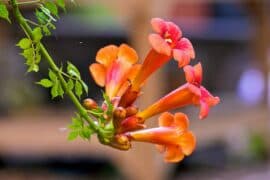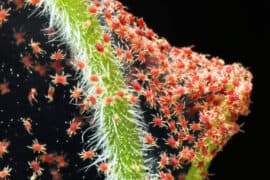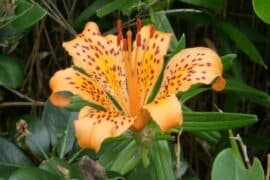Begonia chungii
(Begonia chungii)
Description
Begonia x chungii is a remarkable species in the Begonia genus, named after the hybridizer who made significant contributions to the cultivation of this plant. As an artificial hybrid, it represents the cross-breeding efforts of scientists and horticulturists in the pursuit of creating diverse variations within the genus. This hybrid boasts a variety of attractive qualities that make it an appealing option for hobbyists, professional gardeners, and plant enthusiasts worldwide. Description Begonia x chungii is an herbaceous perennial that displays distinctive growth habits. This hybrid plant typically grows to a height of approximately 12-18 inches and exhibits a bushy, compact growth pattern. The leaves, a defining feature, are asymmetric and usually a dark green color with lighter variegation. They are typically glossy, with a shape that resembles angel wings - a trait it shares with many other Begonias. This hybrid Begonia’s blooms are particularly noteworthy, with colors that range from pink to white. The delicate petals contrast beautifully against the dark foliage, adding an aesthetic appeal that is captivating in any garden or interior space. The flowers bloom mainly in the summer and fall, bringing a dash of vibrant color during these seasons. Cultivation and Care Begonia x chungii is a warmth-loving plant that thrives in USDA hardiness zones 10-11. However, it can be grown in colder regions if cared for as a houseplant or overwintered indoors. When grown outdoors, it prefers a location that provides partial shade, as direct sunlight can lead to leaf scorching. The soil requirements for this plant are quite specific, necessitating a well-draining mixture that is rich in organic matter. Peat moss, perlite, and compost can be blended to create the ideal soil condition. Good drainage is essential as Begonias are particularly susceptible to root rot if left in waterlogged conditions. The watering regime for Begonia x chungii should be moderate, allowing the soil to slightly dry out between watering. Overwatering can lead to the aforementioned root rot, a common issue for Begonia growers. The plant is not a heavy feeder but benefits from occasional feeding with a balanced, water-soluble fertilizer. A feeding schedule of every two weeks during the growing season should suffice. Propagation Propagation of Begonia x chungii can be achieved through several methods, including leaf cuttings, stem cuttings, and division. Leaf-cutting is the most commonly used method, where a healthy leaf is cut, and the veins are sliced. The leaf is then laid flat on the propagation medium, and new plants will eventually sprout from the cut veins. Pest and Disease Like many Begonias, Begonia x chungii can be prone to attacks by pests such as aphids, mealybugs, and spider mites. Regular inspection and early intervention with appropriate pest control methods are essential to maintaining the plant's health. Fungal diseases, particularly powdery mildew and botrytis, can be problematic in humid conditions. Ensuring good air circulation around the plants and avoiding water on the leaves can help in the prevention of these diseases. Conclusion The Begonia x chungii, with its unique characteristics and fascinating growth habit, serves as an attractive addition to both indoor and outdoor garden collections. Its aesthetic appeal combined with its relative ease of care makes it a desirable choice for both novice and experienced gardeners. As an artificial hybrid, it represents the exciting possibilities inherent in plant hybridization, providing us with a remarkable plant that enriches our appreciation for the botanical world. Through attentive care, regular maintenance, and a deep understanding of its requirements, Begonia x chungii can serve as an enduring and beautiful presence, lending a touch of natural elegance to any space it occupies.
Taxonomic tree:







